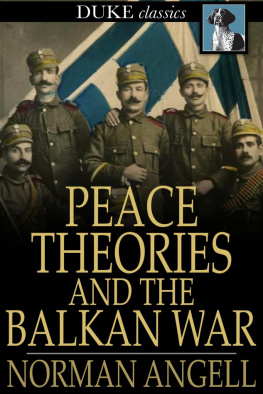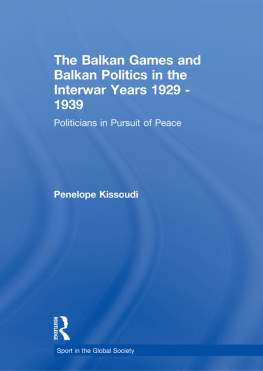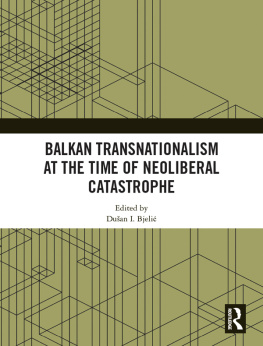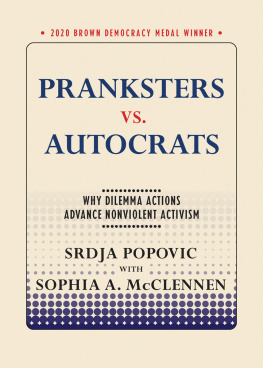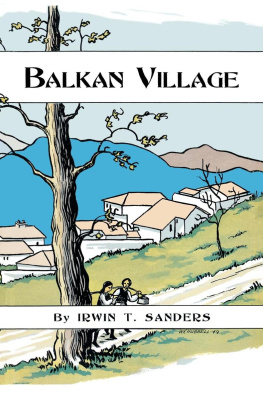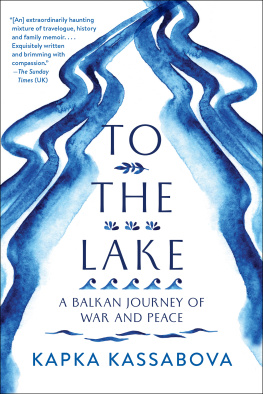Srdja Pavlovic - Balkan Anschluss
Here you can read online Srdja Pavlovic - Balkan Anschluss full text of the book (entire story) in english for free. Download pdf and epub, get meaning, cover and reviews about this ebook. year: 2008, publisher: Purdue University Press, genre: Politics. Description of the work, (preface) as well as reviews are available. Best literature library LitArk.com created for fans of good reading and offers a wide selection of genres:
Romance novel
Science fiction
Adventure
Detective
Science
History
Home and family
Prose
Art
Politics
Computer
Non-fiction
Religion
Business
Children
Humor
Choose a favorite category and find really read worthwhile books. Enjoy immersion in the world of imagination, feel the emotions of the characters or learn something new for yourself, make an fascinating discovery.

- Book:Balkan Anschluss
- Author:
- Publisher:Purdue University Press
- Genre:
- Year:2008
- Rating:3 / 5
- Favourites:Add to favourites
- Your mark:
- 60
- 1
- 2
- 3
- 4
- 5
Balkan Anschluss: summary, description and annotation
We offer to read an annotation, description, summary or preface (depends on what the author of the book "Balkan Anschluss" wrote himself). If you haven't found the necessary information about the book — write in the comments, we will try to find it.
Balkan Anschluss — read online for free the complete book (whole text) full work
Below is the text of the book, divided by pages. System saving the place of the last page read, allows you to conveniently read the book "Balkan Anschluss" online for free, without having to search again every time where you left off. Put a bookmark, and you can go to the page where you finished reading at any time.
Font size:
Interval:
Bookmark:

Central European Studies
Charles W. Ingrao, senior editor
Gray B. Cohen, editor


Introduction
The establishment of the first common state of the South Slavs was announced in Belgrade on December 1, 1918, at the time when the map of Europe was redrawn. The new state was the product of attempts by the international community to deal with the dissolution of the Austro-Hungarian monarchy and the Ottoman state, as much as it represented the fulfillment of desires of the South Slavs.1 From the point of view of the Great Powers (Russia, France, and Great Britain), the common South Slav state came into being as the result of many compromises. Those compromises were made in order to honor the principle of self-determination while trying to satisfy the local and regional powers' growing appetite for new territory. At the end, some of the decisions were in violation of that declared principle. Montenegro is a case in point. From the perspective of many South Slavs, the creation of the Kingdom of the Serbs, Croats, and Slovenes represented the materialization of an old dream. That dream, however, meant different things for different South Slavic groups.
The political elite in Serbia envisaged the new state as the territorial expansion of their own state and as the just reward for their considerable and successful war effort. Croats and Slovenes viewed the new state as leveling the political playing field and as the legal framework that would allow them to preserve and manifest their cultural distinctiveness and political aspirations. Montenegrins were hoping to contribute to the common state in a more constructive manner as one of its constitutive elements. These conflicting desires meant that not everybody was fully satisfied with the structure and the manner in which the new state was created. As time progressed it became apparent to other South Slavs that Serbia, supported by the Great Powers, would play the main role in designing the state structure and influencing its internal dynamics. Ivo Banac rightly pointed out that "the superior power of Serbian government led to the unification that did not meet even the basic desires of those who wanted a federal state organization."2 In the case of Montenegro, such realization came rather late and at a high price in human lives. The text that follows characterizes the events that took place in Montenegro at the end of 1918 as annexation by Serbia rather than as the unification of the two states. Although arguing in favor of using the term annexation in describing the events, I have used both terms throughout. By doing so I have tried to acknowledge that Montenegrins do not have a uniform view on this issue. I have used the term unification when describing and analyzing the views of those who supported the union and the term annexation when representing either my own findings and conclusions or referring to the sentiments of those Montenegrins who opposed the manner in which this matter was handled.
At the end of World War I, Montenegro was annexed by Serbia, thus effectively strengthening its position vis-a-vis other South Slavs and its World War I Allies. The unification of Montenegro with Serbia, which was proclaimed on November 25, 1918, in Podgorica by the Great People's Assembly of the Serbian People in Montenegro, represents one of the most important and hotly contested issues of recent Montenegrin history. This event marked the disappearance of the 400-year-old Montenegrin state and formalized its annexation by Serbia, drawing in blood a deep demarcation line between its citizens. These negative consequences for the Montenegrin state were the product of a combination of economic, political, and military factors, both domestic and international. From the time of annexation forward, manifestations of the political and cultural distinctiveness of Montenegro and its peoples were reduced to a minimum and were colored by the events that took place during and after the Podgorica Assembly. In spite of the later divisions along party lines, the common denominator of the Montenegrin political reality was (and to a great extent still is) the passionate disagreement between the so-called Greens and Whites (Zelensi and Bjelasi) or, respectively, the opponents and advocates of the 1918 annexation/unification. The contested character of the decisions made by the Podgorica Assembly affected the Montenegrin political scene, conditioned the nature of the relations between Serbia and Montenegro for decades to come, and defined the character of the common South Slav state. On a broader level the Podgorica Assembly also indicated numerous ailments that characterized the relatively short and somewhat turbulent existence of the Kingdom of the Serbs, Croats, and Slovenes (later renamed the Kingdom of Yugoslavia) and raised the question about the viability of any common state in those parts of the Balkan Peninsula.
The policies of the period and the events surrounding the annexation of Montenegro became a contested political issue and over the years acquired the character of a debate among intellectuals, historians, and politicians, both in Serbia and in Montenegro. Montenegrin historiography searched for answers by revisiting the issues of Montenegrin identity and the nature of the ideology of the time, as well as by arguing for or against a particular national paradigm. The debate over the significance of the Podgorica Assembly corresponds somewhat to the modern-day dilemmas of many Montenegrins who, throughout the twentieth century, kept searching for the right place and the optimal legal framework for their state and constantly questioned its structure. While attempting to cope with recent traumatic experiences, many Serbs and Montenegrins used historical memories of events that occurred during the first decades of the twentieth century as the basis of their arguments and counter arguments. This gave a new lease on life to the events from the past and made them the topic of contemporary debates.
The participants in this long and spirited debate were many and could be broadly divided into two groups along the old fault lines separating Greens from Whites. They were politicians, lawyers, economists, historians, and writers, and many were contemporaries of the events they wrote about. The central issues they debated were the questions of the legality of the Podgorica Assembly, the legitimacy of its resolution, and its being a representation of the popular will of Montenegrins.
The body of work on this topic in English is relatively minor. Within the Englishspeaking scholarly environments, the Montenegrin Question and the Podgorica Assembly have been addressed only in passing and in the context of a dynastic struggle between Cetinje and Belgrade. English-speaking authors have been concerned with the larger context of the creation of nation-states among the South Slavs and with the balance of power between the two major players in the region, Serbs and Croats. Montenegro was discussed only as a relatively insignificant segment in the process of much larger geopolitical changes in the Balkans.3 The scarcity of material in English, the general nature of the existing material, and the conflicting assessments of the position of Montenegro among the South Slavs are some of the reasons behind this text and, to a great degree, determine its narrative form. Moreover, the consensus was (and is to this day) that the Montenegrins and Serbs are but one nation sharing a common language, religious beliefs, and traditional values. Many scholars are quick to include Montenegrins together with Serbs and point out that the region was, for centuries, a refuge for the remnants of the defeated Serb nation, whereas the Montenegrin state represented only a "peripheral extension of Serbia."4 Others maintained that the argument about shared religious beliefs denotes a contested territory because "Orthodoxy alone can not for any length of time paper over other factors of division.... Montenegrin Orthodoxy has resisted, and still resists, incorporation within a Serbian church."5 As for the books written on the Podgorica Assembly and published in Serbia and Montenegro, they all shared a common feature: the perception of Montenegrins as ethnic Serbs.
Font size:
Interval:
Bookmark:
Similar books «Balkan Anschluss»
Look at similar books to Balkan Anschluss. We have selected literature similar in name and meaning in the hope of providing readers with more options to find new, interesting, not yet read works.
Discussion, reviews of the book Balkan Anschluss and just readers' own opinions. Leave your comments, write what you think about the work, its meaning or the main characters. Specify what exactly you liked and what you didn't like, and why you think so.

